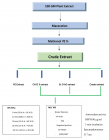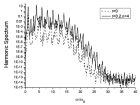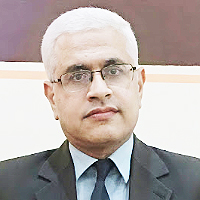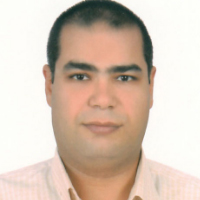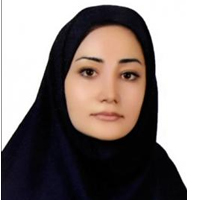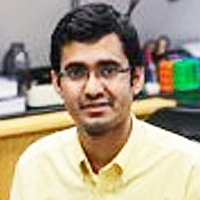Abstract
Review Article
The effects of religiosity and knowledge on the perceptions and attitude of muslim doctors that influence the intentions that impact on behavior in using halal drugs in Indonesia
Amalia Tri Utami*, Wahidmurni and Muhammad Walid
Published: 29 March, 2022 | Volume 3 - Issue 1 | Pages: 021-026
Introduction: In the spirit of maintaining health and seeking medicine to cure a disease, the question of halal and haram still needs to be answered. This coincides with the words of the Prophet Muhammad SAW “Verily Allah does not make your healing in what He has forbidden you” (HR. Imam Bukhari). The purpose of this quantitative study was to determine the effect of religiosity, perception, knowledge, and attitudes of Muslim doctors on the use of halal drugs in Indonesia.
Materials and methods: This quantitative research method with correlational type examines the relationship between religiosity, perceptions, knowledge, attitudes, intentions, and behaviors that are shared online using google form. Data was measured using a Likert scale. A five-point Likert scale was used for statements: Strongly Disagree: 1, Disagree: 2, Uncertain: 3, Agree: 4, and Strongly Agree: 5. The sample size used was 435 Muslim doctors. The data obtained were then processed using the SmartPLS 3.0 application.
Results: The results obtained are that there is a relationship between the religiosity of Muslim doctors on perceptions so as to encourage intention so that there is a change in behavior in the use of halal drugs in Indonesia. In addition, there is a relationship between knowledge and attitudes so as to encourage intentions that cause behavioral changes in the use of halal drugs in Indonesia by Muslim doctors. In fact, every practice depends on the intention, therefore it is important to maintain the intention, which in this study is influenced by perceptions and attitudes so that charity will result in commendable behavior that is blessed by Allah SWT. In addition, there is also a need for education about halal drugs that are appropriate to be taught at the medical faculty of Islamic universities in Indonesia.
Read Full Article HTML DOI: 10.29328/journal.jcmhs.1001016 Cite this Article Read Full Article PDF
Keywords:
Religiosity; Knowledge; Perception; Attitude; Intention; Behavior; Halal medicine; Indonesia
References
- Rakrachakarn V, Moschis GP, Ong FS, Shannon R. Materialism and life satisfaction: the role of religion. J Relig Health. 2015; 54: 413-426. PubMed: https://pubmed.ncbi.nlm.nih.gov/24233840/
- Singhapakdi A, Vitell SJ, Lee DJ, Nisius AM, Yu GB. The inflfluence of love of money and religiosity on ethical decision-making in marketing. J Business Ethics. 2012; 114: 183-191.
- Bakar A, Lee R, Hazarina Hashim N. Parsing religiosity, guilt and materialism on consumer ethics. J Islamic Marketing. 2013; 4: 232-244.
- Karami M, Olfati O, Dubinsky A. Influence of religiosity on retail salespeople’s ethical perceptions: the case in Iran. J Islamic Marketing. 2013; 5: 144-172.
- Pace S. Effects of intrinsic and extrinsic religiosity on attitudes toward products: empirical evidence of value-expressive and social-adjustive functions. J Appl Busin Res. 2014; 30:1227-1238.
- Rakrachakarn V, Moschis GP, Ong FS, Shannon R. Materialism and life satisfaction: the role of religion. J Relig Health. 2015; 54: 413-426. PubMed: https://pubmed.ncbi.nlm.nih.gov/24233840/
- Yousaf S, Shaukat Malik M. Evaluating the inflfluences of religiosity and product involvement level on the consumers. J Islamic Marketing. 2013; 4: 163-186.
- Singhapakdi A, Vitell SJ, Lee DJ, Nisius AM, Yu GB. The inflfluence of love of money and religiosity on ethical decision-making in marketing. J Business Ethics. 2012; 114: 183-191.
- Bakar A, Lee R, Hazarina Hashim N. Parsing religiosity, guilt and materialism on consumer ethics. J Islamic Marketing. 2013; 232-244.
- Vitell SJ, Bing MN, Davison HK, Ammeter AP, Garner BL, et al. Religiosity and moral identity: the mediating role of self-control. J Business Ethics. 2008; 88: 601-613.
- Duivenbode R, Hall S, Padela AI. Assessing relationships between muslim physicians' religiosity and end-of-life health-care attitudes and treatment recommendations: an exploratory national survey. Am J Hosp Palliat Care. 2019; 36: 780-788. PubMed: https://pubmed.ncbi.nlm.nih.gov/30813738/
- Ahmed M, Kubilis P, Padela A. American Muslim Physician Attitudes Toward Organ Donation. J Relig Health. 2018; 57: 1717-1730. PubMed: https://pubmed.ncbi.nlm.nih.gov/30076496/
Figures:
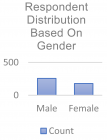
Figure 1
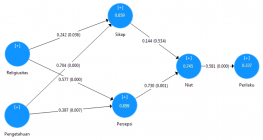
Figure 2
Similar Articles
-
Rural adolescent health: Issues, behaviors and self-reported awarenessMolly Jacobs*. Rural adolescent health: Issues, behaviors and self-reported awareness. . 2020 doi: 10.29328/journal.jcmhs.1001001; 1: 001-017
-
Assessment of knowledge, practice and associated factors towards prevention of novel corona virus among clients attending at Debre Tabor General Hospital, Debre Tabor Town, North West Ethiopia, 2020: Institutional based cross-sectional studyTigabu Desie Emiru*,Tekalign Amera Birlie,Sheganew Fetene Tasew,Abraham Tsedalu Amare,Nigusie Selomon Tibebu,Chalie Marew Tiruneh. Assessment of knowledge, practice and associated factors towards prevention of novel corona virus among clients attending at Debre Tabor General Hospital, Debre Tabor Town, North West Ethiopia, 2020: Institutional based cross-sectional study. . 2020 doi: 10.29328/journal.jcmhs.1001004; 1: 026-034
-
Utilization of midwives service scheme among women farmers in Southwestern NigeriaOluwasusi JO*,Thomas KA,Olujide MG,Oluwasusi YO. Utilization of midwives service scheme among women farmers in Southwestern Nigeria. . 2020 doi: 10.29328/journal.jcmhs.1001005; 1: 035-046
-
Suicide in teenagers during the COVID-19 pandemic in Cuba: actions for its preventionMaydell Pérez Inerárity*,Claudia Elvira Casamayor Leiza,Julio César Pérez Yero,Brayan Chávez Miguel. Suicide in teenagers during the COVID-19 pandemic in Cuba: actions for its prevention. . 2021 doi: 10.29328/journal.jcmhs.1001007; 2: 001-006
-
Epidemiological profile of the homeless population assisted by voluntary initiative and the social impact on access to healthcare: an investigative study in Curitiba, BrazilFrancelise Bridi Cavassin*,Rafael Senff Gomes,Luiza Cardoso de Lima Passoni,Ricardo Sirigatti. Epidemiological profile of the homeless population assisted by voluntary initiative and the social impact on access to healthcare: an investigative study in Curitiba, Brazil. . 2021 doi: 10.29328/journal.jcmhs.1001010; 2: 015-020
-
Factors influencing referral delay of cancer patients to an oncology unit in the Southern Region of Saudi ArabiaAli M Al Zahrani*,Hatim M Ali,Shaza A Ahmed,Ahmed M Abdelakher,Asma A Al Zahrani,Hatoon Bakhribah. Factors influencing referral delay of cancer patients to an oncology unit in the Southern Region of Saudi Arabia. . 2021 doi: 10.29328/journal.jcmhs.1001012; 2: 025-030
-
Knowledge, attitude and practice towards facemask use amid the COVID-19 pandemic among public transport drivers in Debre-Tabor town, EthiopiaGashaw Mehiret Wubet*,Libsuye Yalgaw Zimamu. Knowledge, attitude and practice towards facemask use amid the COVID-19 pandemic among public transport drivers in Debre-Tabor town, Ethiopia. . 2022 doi: 10.29328/journal.jcmhs.1001013; 3: 001-010
-
Indoor air pollution and behavioral factors affecting to COVID-19 transitionMojtaba Ehsanifar*,Mehravar Rafati,Zeinab Yavari. Indoor air pollution and behavioral factors affecting to COVID-19 transition. . 2022 doi: 10.29328/journal.jcmhs.1001015; 3: 016-020
-
The effects of religiosity and knowledge on the perceptions and attitude of muslim doctors that influence the intentions that impact on behavior in using halal drugs in IndonesiaAmalia Tri Utami*,Wahidmurni,Muhammad Walid. The effects of religiosity and knowledge on the perceptions and attitude of muslim doctors that influence the intentions that impact on behavior in using halal drugs in Indonesia. . 2022 doi: 10.29328/journal.jcmhs.1001016; 3: 021-026
-
Face mask utilization and associated factors in combating COVID-19 pandemic among government employee in Akaki district administration offices, Oromia, Ethiopia, 2022Amenti Teka Geferso*,Derese Desalegn Buta,Adam Sheikh Said,Geleta Merga Duguma. Face mask utilization and associated factors in combating COVID-19 pandemic among government employee in Akaki district administration offices, Oromia, Ethiopia, 2022. . 2022 doi: 10.29328/journal.jcmhs.1001018; 3: 035-047
Recently Viewed
-
Stages in COVID-19 vaccine development: The Nemesis, the Hubris and the ElpisVinod Nikhra*. Stages in COVID-19 vaccine development: The Nemesis, the Hubris and the Elpis. Int J Clin Virol. 2020: doi: 10.29328/journal.ijcv.1001028; 4: 126-135
-
Galenic hospital laboratory during COVID-19 emergency: A practical experience in an advanced countryLuisetto M*,Fiazza C,Ferraiuolo A,Ram Sahu. Galenic hospital laboratory during COVID-19 emergency: A practical experience in an advanced country. Int J Clin Virol. 2020: doi: 10.29328/journal.ijcv.1001027; 4: 118-125
-
COVID-19 and taking care and protection of patients with intellectual disabilities, need special care and equityMuhammad Tayyab*,Faheem Anwar,Jawad Khan,Ihteshamul Haq. COVID-19 and taking care and protection of patients with intellectual disabilities, need special care and equity. Int J Clin Virol. 2020: doi: 10.29328/journal.ijcv.1001026; 4: 116-117
-
COVID-19 pandemic, recurrent outbreaks and prospects for assimilation of hCoV-19 into the human genomeVinod Nikhra*. COVID-19 pandemic, recurrent outbreaks and prospects for assimilation of hCoV-19 into the human genome. Int J Clin Virol. 2020: doi: 10.29328/journal.ijcv.1001025; 4: 111-115
-
The expected second wave of COVID-19Madiha Asghar*,Misbahud Din. The expected second wave of COVID-19. Int J Clin Virol. 2020: doi: 10.29328/journal.ijcv.1001024; 4: 109-110
Most Viewed
-
Evaluation of Biostimulants Based on Recovered Protein Hydrolysates from Animal By-products as Plant Growth EnhancersH Pérez-Aguilar*, M Lacruz-Asaro, F Arán-Ais. Evaluation of Biostimulants Based on Recovered Protein Hydrolysates from Animal By-products as Plant Growth Enhancers. J Plant Sci Phytopathol. 2023 doi: 10.29328/journal.jpsp.1001104; 7: 042-047
-
Sinonasal Myxoma Extending into the Orbit in a 4-Year Old: A Case PresentationJulian A Purrinos*, Ramzi Younis. Sinonasal Myxoma Extending into the Orbit in a 4-Year Old: A Case Presentation. Arch Case Rep. 2024 doi: 10.29328/journal.acr.1001099; 8: 075-077
-
Feasibility study of magnetic sensing for detecting single-neuron action potentialsDenis Tonini,Kai Wu,Renata Saha,Jian-Ping Wang*. Feasibility study of magnetic sensing for detecting single-neuron action potentials. Ann Biomed Sci Eng. 2022 doi: 10.29328/journal.abse.1001018; 6: 019-029
-
Pediatric Dysgerminoma: Unveiling a Rare Ovarian TumorFaten Limaiem*, Khalil Saffar, Ahmed Halouani. Pediatric Dysgerminoma: Unveiling a Rare Ovarian Tumor. Arch Case Rep. 2024 doi: 10.29328/journal.acr.1001087; 8: 010-013
-
Physical activity can change the physiological and psychological circumstances during COVID-19 pandemic: A narrative reviewKhashayar Maroufi*. Physical activity can change the physiological and psychological circumstances during COVID-19 pandemic: A narrative review. J Sports Med Ther. 2021 doi: 10.29328/journal.jsmt.1001051; 6: 001-007

HSPI: We're glad you're here. Please click "create a new Query" if you are a new visitor to our website and need further information from us.
If you are already a member of our network and need to keep track of any developments regarding a question you have already submitted, click "take me to my Query."







